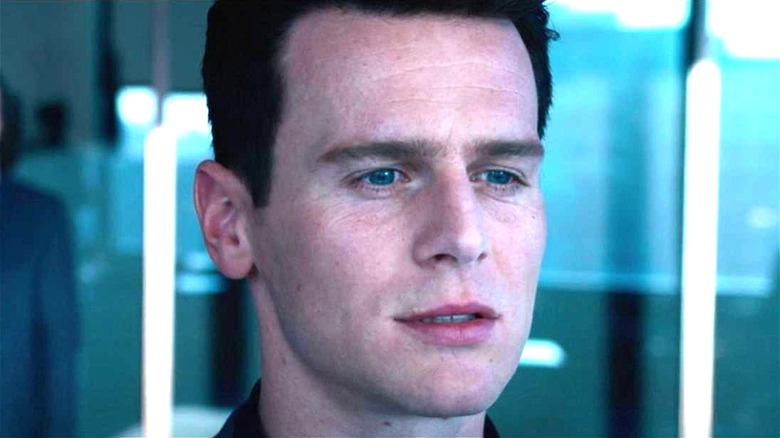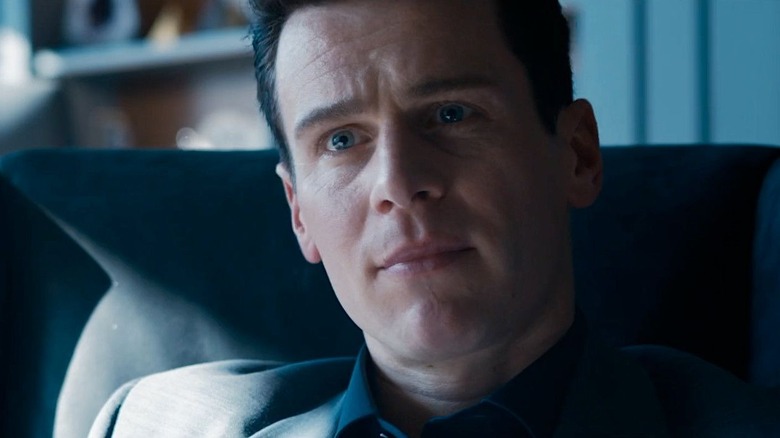Agent Smith's Drastic Change In The Matrix Resurrections Explained
The following article contains spoilers for "The Matrix Resurrections."
"The Matrix Resurrections" makes some significant changes compared to the original trilogy. First and foremost, Morpheus is younger and played by Yahya Abdul-Mateen II instead of Laurence Fishburne. It's explained in the movie, and all has to do with the themes of deja vu and repeating the past. After all, how much choice do any of us have when history dictates so much of our current existence? It gets philosophical quickly, but it also serves as an excellent reminder of the nature of sequels and reboots, which have tendencies to repeat the same plots as what's come before.
This idea of choice factors heavily into another major difference between "Resurrections" and the original trilogy, that of Agent Smith. Fans of the franchise should know he was played by Hugo Weaving in the first three films, but for "Resurrections," he was portrayed by Jonathan Groff of "Hamilton" fame. Again, to the uninitiated, this may come across as a simple recasting. However, there's a moment Agent Smith has toward the end of the film that exemplifies the movie's themes perfectly.
Agent Smith defies expectations of the past
One of the most intriguing pieces of dialogue in "The Matrix Resurrections" comes during a discussion of how there are two paths for one to follow. People have a choice between good and evil, of accepting free will or destiny. The speech contends that reality is binary, and you can only ever accept one thing or the other. Over the course of the film, Agent Smith shows how it's possible to break free and choose a different route when presented with one.
Agent Smith functions as an antagonist throughout much of the movie's runtime, fighting Neo and his friends twice. At first glance, he comes across as a perfect recreation of Agent Smith from the original "Matrix" trilogy. Then, for his third main appearance, Smith has a change of heart. He decides to work alongside Neo (Keanu Reeves) and put a stop to the Matrix's plan. It may seem like it comes out of nowhere, but remember the name of the company Smith and Thomas Anderson worked for? That's right; it was "Deus Machina," as in "deus ex machina."
All it takes is for Smith to break free of the Matrix's programming to determine what he really wants, and he would rather function as a free agent than continue working for The Analyst (Neil Patrick Harris). It serves as symbolism that reality isn't always black and white. Sometimes there are tinges of gray in there, as well.

